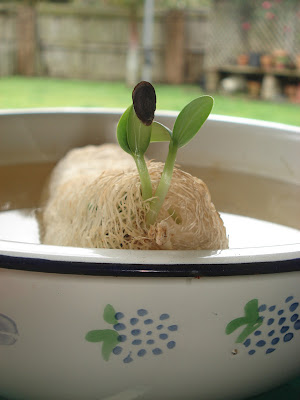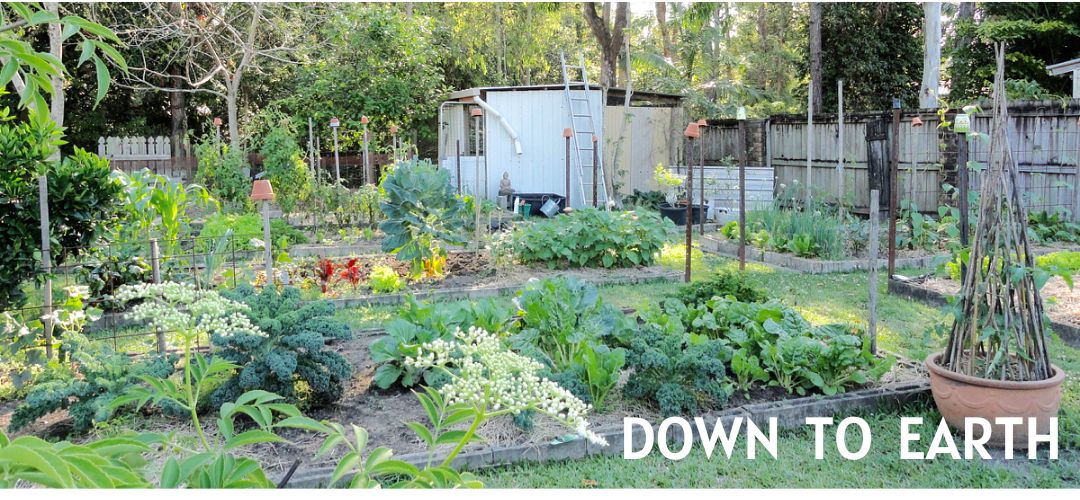
I have written here in the past about the satisfaction Hanno and I feel by being independent. For us, independence means that we're able to look after ourselves well, choose what we'll do with our time every day, and if there was a disaster here and we were cut off from the shops, or water, or electricity, we'd happily stay afloat for months before we'd need assistance. But we also know that to remain independent in the long term, we need to be a part of an inclusive and supportive community. No matter how smart and capable you are, there will always be a time you need help and will have to rely on others to get you through. If you're part of a supportive community you're more likely to maintain your independence, albeit within the framework of interdependence.
There is another important element here to consider as well. No one can do everything. There are very few of us who could learn every skill, have access to all the raw ingredients, give the time to making everything from scratch and still have time for the sweet enjoyment this way of living brings. So there will be common sense trade offs along the way. You don't know how to make soap? Fine, barter good soap from a local trader and trade something you have that s/he needs. You don't have the land to grow a garden? Not a problem, barter your knitting, sewing, car maintenance, lawn mowing, jam making, sour dough services to a local vegetable gardener who doesn't have your skills. Need eggs but your local government authority doesn't allow you to keep chickens? Who cares, trade the honey from your bees, your homemade soap or laundry liquid for eggs. There are any number of trades you could come up with, or you could buy what you need from local people and help keep you local economy strong and robust.
Your currency here, just as in many other circumstances, are your life skills. Learning how to make a lot of what you need will help put you in a position to barter those skills to get the items you have neither the time nor inclination to make yourself. But you need to be part of a healthy community to know who to barter with.
This type of community doesn't just happen, it needs to be built; it takes time and a lot of interested people to do it. You can help move it along by:
I see a time in our future when Hanno and I won't be able to garden as we do now, but because we live in a thriving and caring community, we'll continue to eat fresh, organic, backyard produce because we will barter weekly eggs or bread for the vegetables we need. That's like an insurance policy. We invest in our community now, we help support this most valuable and significant of resources, and we reap the benefits of being a part of it for a long time. This is long term planning but it needs to start with your small steps towards it now. Who knows what your community might turn into with a little bit of help. I do know one thing, you'll never know unless you, or someone who looks very much like you, starts that wheel turning.
.........................................................................................................................................................
 The story of the photo.
The story of the photo.
Recently I was asked by an English publisher for some photos of loofahs, both growing and being processed. I sent what they needed and they wrote back and said the final photos of the loofahs soaking in water with a little bleach added weren't suitable and could I send others. It was a particularly busy time and after looking for the photos I thought I had without finding them, I decided to take new photos. I found a box full of loofahs that were waiting to be cleaned up, and took the photos they needed. But because I was so busy, I just left the bowl there and got on with life. A week later, I was really surprised to see two loofah vines growing from inside the loofah, and even more vines developing inside the sponge. It goes to show that given the right circumstances, amazing things can happen.
There is another important element here to consider as well. No one can do everything. There are very few of us who could learn every skill, have access to all the raw ingredients, give the time to making everything from scratch and still have time for the sweet enjoyment this way of living brings. So there will be common sense trade offs along the way. You don't know how to make soap? Fine, barter good soap from a local trader and trade something you have that s/he needs. You don't have the land to grow a garden? Not a problem, barter your knitting, sewing, car maintenance, lawn mowing, jam making, sour dough services to a local vegetable gardener who doesn't have your skills. Need eggs but your local government authority doesn't allow you to keep chickens? Who cares, trade the honey from your bees, your homemade soap or laundry liquid for eggs. There are any number of trades you could come up with, or you could buy what you need from local people and help keep you local economy strong and robust.
Your currency here, just as in many other circumstances, are your life skills. Learning how to make a lot of what you need will help put you in a position to barter those skills to get the items you have neither the time nor inclination to make yourself. But you need to be part of a healthy community to know who to barter with.
This type of community doesn't just happen, it needs to be built; it takes time and a lot of interested people to do it. You can help move it along by:
- compiling a list of local skilled people (contact them and let them know what you're doing);
- writing an article for the local paper to ask if there are any others interested in building the community;
- bartering and sharing;
- passing on what you know;
- getting to know your neighbours;
- helping your neighbours;
- starting a car pool for school.
I see a time in our future when Hanno and I won't be able to garden as we do now, but because we live in a thriving and caring community, we'll continue to eat fresh, organic, backyard produce because we will barter weekly eggs or bread for the vegetables we need. That's like an insurance policy. We invest in our community now, we help support this most valuable and significant of resources, and we reap the benefits of being a part of it for a long time. This is long term planning but it needs to start with your small steps towards it now. Who knows what your community might turn into with a little bit of help. I do know one thing, you'll never know unless you, or someone who looks very much like you, starts that wheel turning.
.........................................................................................................................................................
 The story of the photo.
The story of the photo.Recently I was asked by an English publisher for some photos of loofahs, both growing and being processed. I sent what they needed and they wrote back and said the final photos of the loofahs soaking in water with a little bleach added weren't suitable and could I send others. It was a particularly busy time and after looking for the photos I thought I had without finding them, I decided to take new photos. I found a box full of loofahs that were waiting to be cleaned up, and took the photos they needed. But because I was so busy, I just left the bowl there and got on with life. A week later, I was really surprised to see two loofah vines growing from inside the loofah, and even more vines developing inside the sponge. It goes to show that given the right circumstances, amazing things can happen.
